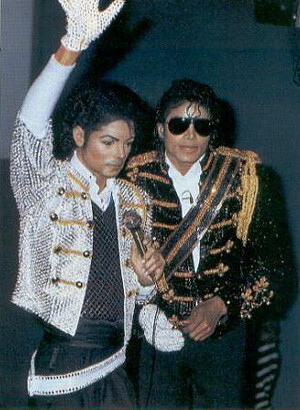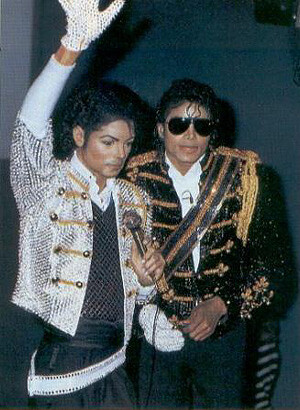July 2009
Many American media outlets considered the possibility that the King of Pop’s death could have been a media stunt designed to promote the “comeback” concert scheduled for this summer in London. But what could have been a media stunt later became a possible homicide. In order to prevent further speculation, the media went to work correlating and double-checking the putative cause of death. Few went so far as to accuse Michael Jackson’s personal doctor of causing his patient’s untimely death by administering the wrong medicine; most decided to investigate the side effects associated with common drugs. Tylenol, the most widely used drug worldwide, was at the center of these media investigations (the stronger varieties of Tylenol contain Codeine, and have a long list of serious side effects). Other news networks followed developments surrounding the death of a forty-year-old woman, reportedly due to a Tylenol overdose. Michael Jackson’s sudden death needed a culprit in order for it to be justified in peoples’ minds, and Tylenol provided the perfect suspect due to its reach and ubiquity.
Meanwhile, the same media outlets that looked upon Jackson’s death with suspicion treated Neda Agha-Soltan’s death by the hands of the Basij in Iran as a fact. The Basij are known to be first-rate killers, and Neda is but one of their many victims, yet the Basij do not roam the streets of Los Angeles and New York City in search of their next kill. Who, then, is responsible for the death of Michael Jackson? It could only have been Tylenol: a lawless murderer, out of control.
Why is it so difficult to believe that Michael is dead? This question is intimately tied to his career. As is always the case with the death of a legendary figure in art or politics, the difficulty people have in accepting such death contributes to the immortality of the person in question. There are countless reasons for someone who has made it to the top to not take his own life, and Michael was at the top. Doctors were at his disposal the whole time, and he had unlimited access to medication. If there is no good reason for Michael to have died, then what could have killed him? The ultra-realists have a quick answer: he knew his grip on fame was slipping, and his creditors simply helped him off the cliff. He lived a life of abundance and spent more than he earned, even though he produced so much.
This view certainly has merit; celebrities die this way, their falls from grace haunt them at their greatest moments, and they begin to take sudden steps into the growing darkness around them. And when they retrace their steps back into the limelight, they are willing to expend whatever they have left in their possession to stay there.
Michael Jackson was one of these celebrities. He spent the last two decades of his life in freefall. During those years, he tried to invite attention to his private life and to his body. Many saw objectionable things in him despite the fact that he achieved unequalled fame as a black man in racism-plagued America. He even skinned himself, literally, to a point where he was more white than white. The boy who sang for the loss of his loved one seemed in his later years asexual. The consummate performer, a firecracker on stage, spent his last days in a pile of shaved skin and bone and the muscular remains of memories. Michael Jackson died with half a body, half a gender, and half a color. Who was he in his last days? Indeed.
It’s a tragic race to the top. Michael was, without a doubt, the greatest entertainer of his time. However, he was locked in a struggle with his own image: how could he transcend his own creation and conquer the summit he created for himself, with full knowledge of its perils? Can a sick horse outrun its younger, healthier self? Michael was more aware of his own obsolescence than anybody else in the business, and with that knowledge he was left with no choice but to transcend his body by pushing his act to its limit. He started his career as a musician, singer, and dancer, and ended up fragmenting his body into severed limbs, rendering himself unrecognizable to his audience. What is left of young Michael in this pile of humanity? Only he himself could have answered such a question. Piece by piece, he offered his body to the stage until he reached the point of no return. That was when he began to eradicate the remains of his former self, his memory: the idealized image of a beautiful black man, the innovative dancer (it’s rumored that he wore himself out during the rehearsals just before his death). Anything else that emerged from the mediasphere after his long sabbatical became, in the eyes of viewers, images of a dying man.
Did Michael Jackson die, or did his image? Let’s assume for a moment that his downward spiral was not preordained. He might not have foreseen the outcomes of his actions, but he was most certainly conscious of the alterations he was making to his body. It started with local surgeries, and ended up leaving him without evidence of a former self. Yet under extremely complicated medical, nutritional, and environmental conditions, this image could still breathe and move. This painted, surrogate self was whiter and skinnier than the body it represented. In a way, it managed to sustain a life that speaks and moves and shakes hands with world leaders and celebrities—a life that comes back to sing and dance.
He killed his body for his image, performing a true work of art. Had he not been captured by death and successfully ascended the stage, he would have assumed yet another image that was not his. We will not reference the many installation artists who have used their bodies as canvasses because none of them reached Michael’s Deleuzian relation with art. He succeeded in sealing off all his orifices, becoming an image that cannot nourish itself or breathe, or has perhaps discovered an alternative to life, one so far unknown to humans. There is more “art” in his image than flesh and bone.
Michael forced this rubble of image and human remains to survive on very little for years. It is those years that are at the center of the way images are studied from a Barthesian perspective, in the way they encapsulate eternity in a single frame. Who could have imagined, prior to Michael’s expensive experiment, that a dead man’s image could stay alive? Who could have imagined that a man might replace his body with an image that would then become a shrine, beckoning visitors for eternity?
Michael was the object of envy and admiration when he was on the rise. However, those sentiments dissipated as he began to perform his alienating physical transformations; people rejected the idea of him and the desire to emulate him in any way. And it remains likely that many will be similarly crowned the greatest artists of their time, but it is less likely that they will approach what he attained as an eternal image of the artist’s obsolescence.
People couldn’t believe that Michael was dead because there was no longer anything left of him upon which nature could take its course. This kind of death is so alien and rare that the only way of dealing with it is to imagine the impossibility of its occurrence. And if it did indeed take place, then it is not so different from destroying a Van Gogh at the Louvre.
Neda Agha-Soltan is dead because she lived her life with her body. Michael, on the other hand, was nothing but an image whose death could have been prevented by injecting it with some human blood.


Category
Translated from the Arabic by Alaa Diab.
